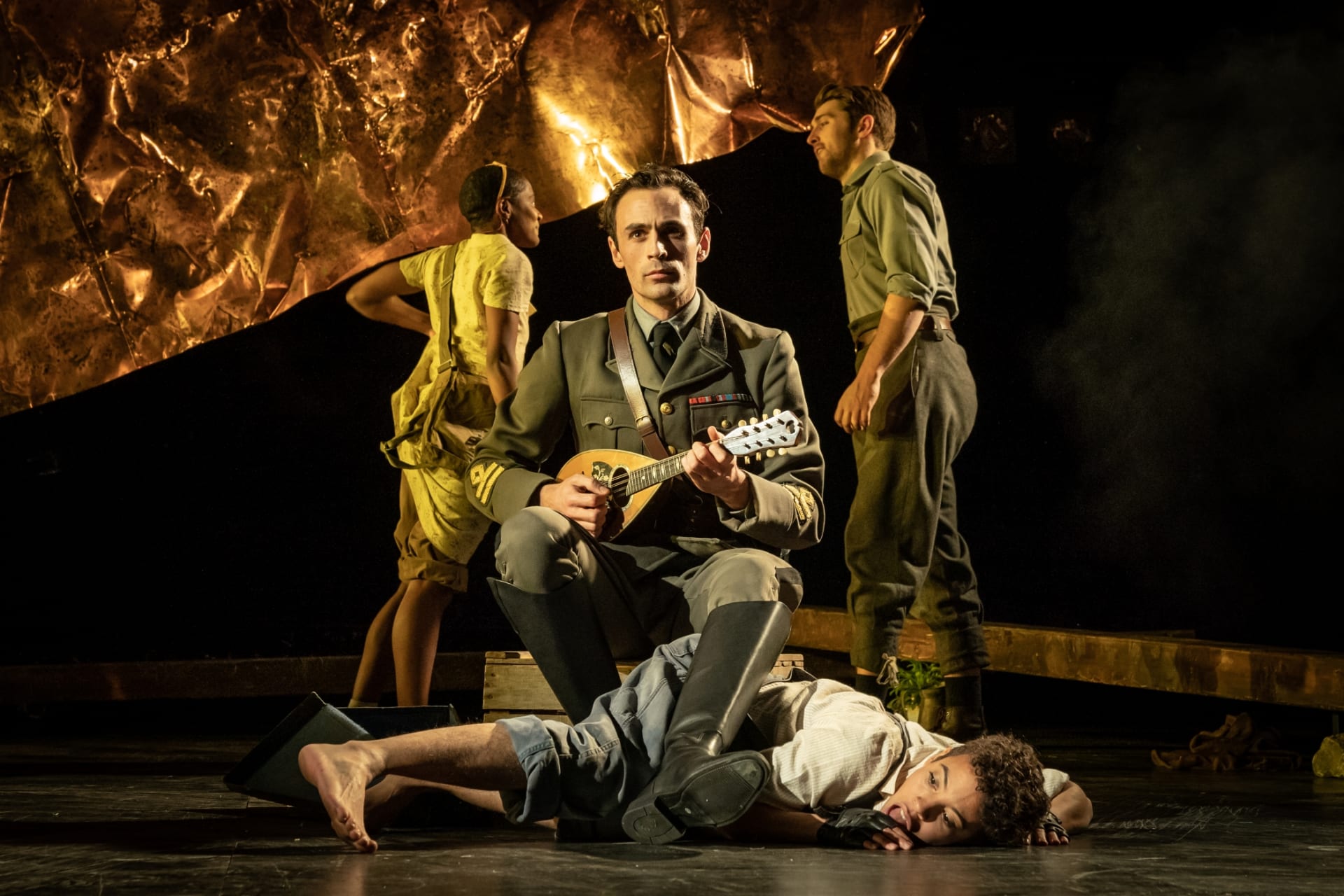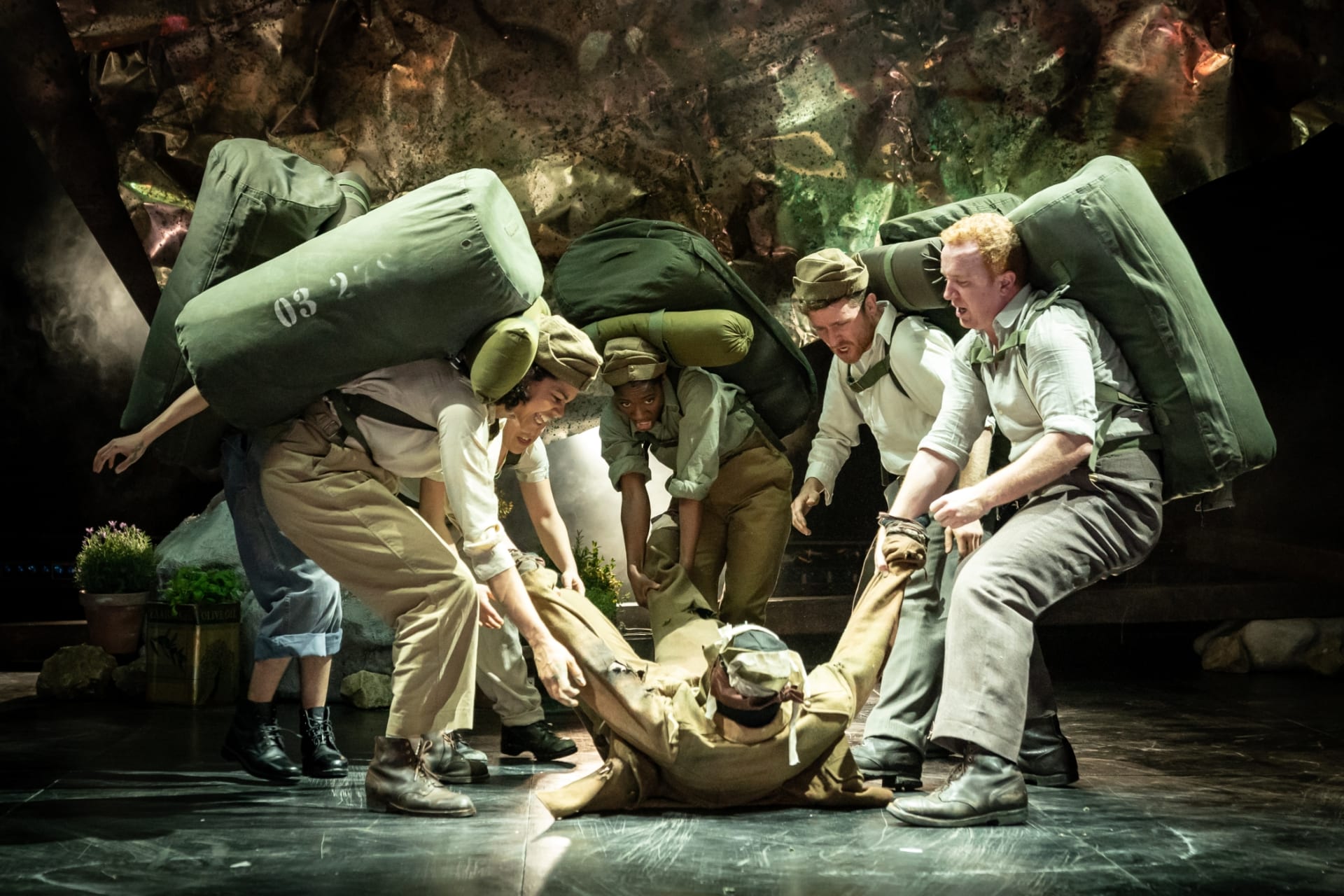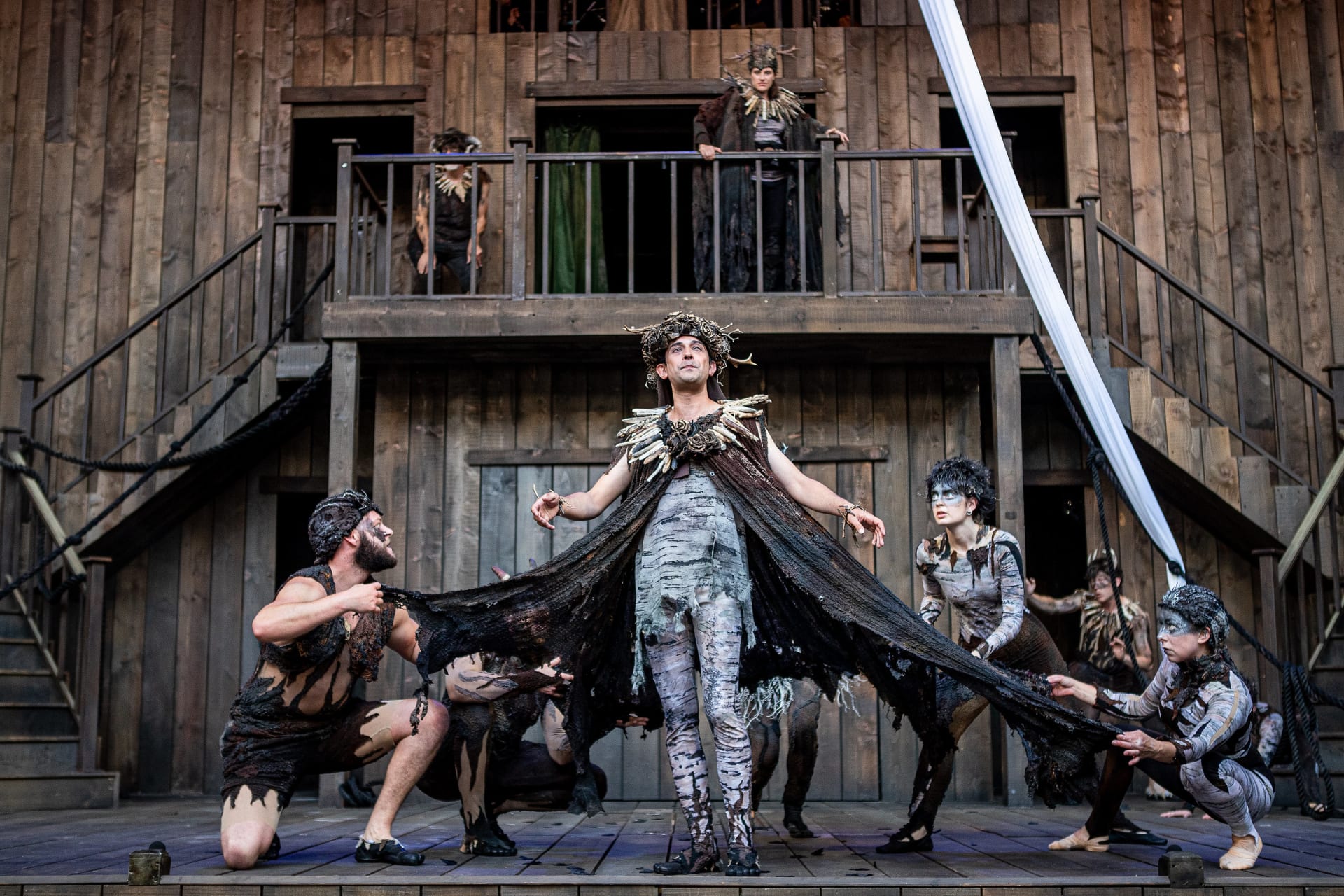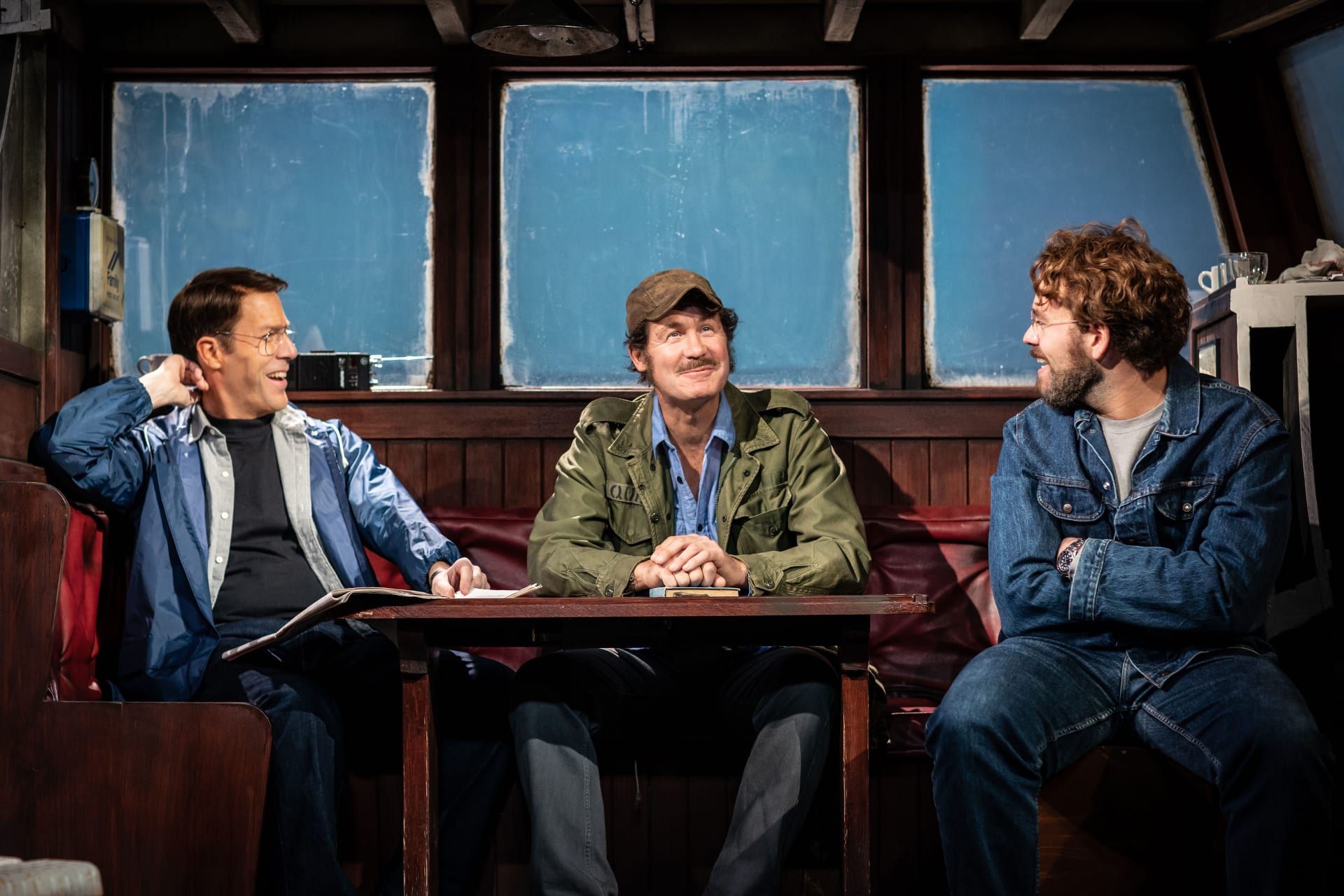Ah, the 90s – Britpop, New Labour and affordable housing. For an undiluted, triple-distilled shot of this era you need look no further than the genre-defining rom-com, Notting Hill. Skip to the end and you’ll see Hugh Grant and Julia Roberts reclined on a park bench; look closely and you’ll see Grant is flicking through that other 90s cultural phenomenon, Captain Corelli’s Mandolin. It’s now 25 years since its release, in which time it has sold in excess of 1.5 million copies and been made into a film that would be forgettable were it not so regrettable. That it was, like Notting Hill, also produced by Working Title, makes that final scene perhaps the most effective piece of product placement of all time.
Corelli is my mum’s all-time favourite book – a statement I’m sure is true of many in this country and beyond – so when I saw that a new stage production of the novel had just been given a West End transfer to the Harold Pinter theatre, I immediately snapped up some tickets. I looked into it a little more and found that the lead, Alex Mugnaioni, had been to Abingdon School. That Mum was, once upon a time, the registrar at Abingdon Prep made the whole affair all the more serendipitous. A few emails later and Alex and I were on the phone. The love for the character of Captain Corelli exists by virtue both of the quality of the novel and the insufferable mediocrity of the movie, which diehard fans like my mother won’t even acknowledge. Alex hasn’t watched it – a copy still remains in its plastic wrapping at his house. How do you approach a character so loved and so beleaguered that exists in the imagination of thousands? “Often for an actor there’s a lot of pressure about performing a role that so many people already have an idea of, but if you engage in that thought you’d just explode. We’re very lucky to have the book, which I treated like a bible.”
For Alex, despite the story being “set in a very specific historical time, it covers the human struggle of what it is to be caught underneath such a destructive umbrella like WW2,” it is a story about love “in all its different forms.” The novel was adapted for the stage by Rona Munro, and he’s pleased to let me know that “we’ve stayed faithful to the book.” One of the more disappointing omissions from the movie was the total amputation of the homosexual narrative surrounding the character of Carlo. “To create a film where it cuts one of the main narratives out, predominantly, I imagine, to fit Hollywood ideas of love, was I think a real travesty. Rona has done a really fantastic job of honouring that relationship. In the writing of it you can feel how much love she has for these characters, especially Carlo, who is throughout the whole narrative.”
Perhaps the single most important element for Alex’s preparation was learning the mandolin. Sadly, the original 129-year-old Neapolitan instrument went missing after he forgot it on a train luggage rack after a long day of rehearsals. “The mandolin we have now is not the first one we got,” he says with a self-effacing laugh. He speaks very highly of his teacher, “Sergio Vacca – the most Italian man”, who took him from total beginner to stage-worthy player in four months. He took lessons with Fred Fergus who plays Francesco and also understudies Corelli. “We’d been playing one of the pieces he’d given us to practice together. Both of us played it and we were like, ‘Sergio, what do you think?’ There was a pause and he went, ‘it’s, um… very ok.’ I think that’s worse than just ‘ok’. I’m hoping it was a translation thing.”
The book has an incredible scope to it – spanning decades of richly conceived history, weaving a polyphonic romance throughout. Without a marathon run-time, it’s always going to be practically impossible to fit everything in. “We’ve done it in a very figurative way with lots of doubling roles and physical movement and music,” explains the lead. Mayou Trikerioti’s set brings Cephalonia to life, with a huge copper backdrop onto which projections evoke the action. Lots of clever choreography and movement direction (by George Siena) conjure everything from battle scenes to dolphins, while the two animal characters, the goat and the pine marten, are performed with exquisite physicality by Luisa Guerreiro and Elizabeth Mary Williams respectively.
The novel’s author, Louis de Bernières, has seen the production and is seemingly chuffed. “I think he had a quite traumatic experience with the film – you’d have to ask him but that’s what I’ve heard. He came to the show on press night and seemed to be very pleased, and said some nice things to the cast including me. He said that I was what he imagined Corelli to be, except I was just a bit taller. You can’t have everything!” That the author feels that way “is a pretty big deal, and it feels nice that the work everyone’s put in has paid off. I mean, his opinion is important, but so is the opinion of whoever’s read it. I think from the response we’ve been getting, that’s the case.”
Finally I ask Alex what advice he would give to the budding young actors of our area. “I think just to stick at it,” he begins. “I was very lucky to have parents that were very open to what I wanted to do and to allowing me to explore what I enjoyed. For anyone who has people saying, ‘it’s not a real job, you need to go to university first’ – just follow your heart. If you’ve got the love, if you’ve got the passion, I think you should pursue it and see where it takes you.”
“And don’t leave things on luggage racks,” I intone cheekily. “I think that should be a rule for anyone really,” he laughs. “If you put anything up there you will forget it. If you have to borrow a 130-year-old instrument, do not leave it on the rack.”
Captain Corelli’s Mandolin runs until 31 August at the Harold Pinter Theatre. For tickets, visit atgtickets.com
Photos by Marc Brenner










